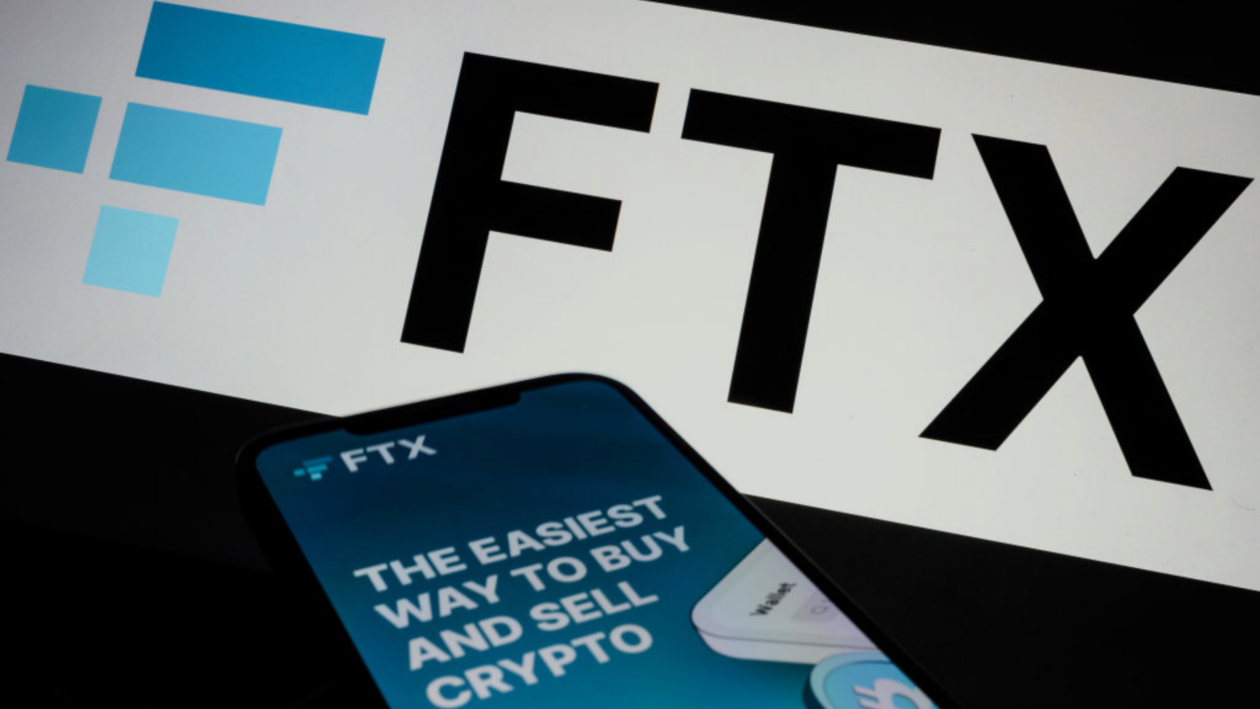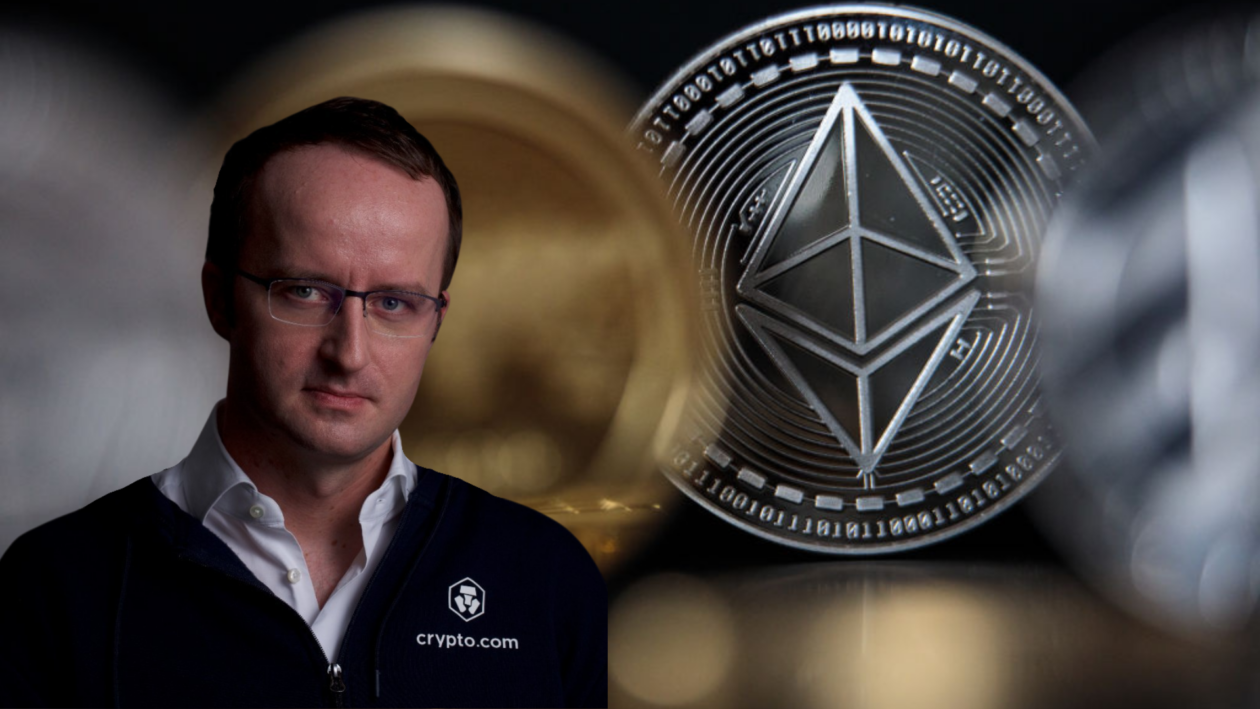FTX collapse leaves investors jittery over crypto contagion
In this issue
- FTX: Contagion fears
- Crypto.com: Fat finger?
- Hong Kong: Crypto reset
From the Editor’s Desk
Dear Reader,
When it rains, it pours. That’s certainly the feeling among much of the cryptocurrency community at the moment in the wake of the collapse of FTX.
In the days that have followed, the crypto bank run that toppled FTX and exposed all of its illegalities and mishandling of customers’ funds has been accelerating across the industry. Every centralized crypto exchange is seeing record-setting withdrawals, and more may fall. If you can’t trust the most trusted guy in crypto, who can you trust?
It seems that the tepid “recovery” from the beating the industry has endured for the past 12 months, which many thought had reached its nadir with the implosion of Terra-LUNA, was a false narrative. Sam Bankman-Fried, the now fallen “white knight” who rescued some crypto companies after the Terra-LUNA collapse, now appears to have broken the dam of trust.
The consequences of the massive blowout at FTX have hardly begun to unfold. But it’s time for a reset.
Entrusting one’s funds to what amounted to an all-but-unregulated proprietary trading desk suddenly doesn’t feel so much like a winning plan anymore, and calls among the crypto community for self-custody of coins and other digital assets, in this context, make some sense.
Putting in place solid, bank-grade regulation and oversight — a lack of which has imposed irrecoverable losses on huge numbers of small investors — will restore trust, and allow the industry to welcome much-needed capital to spur the innovation still being built.
Market confidence has been dealt a severe blow. However the industry weathers the storm that FTX has ushered in — and it will weather the storm — things won’t be the same again. They’ll be better. Because from a point as low as where this governance-free conduct has led the sector, the only way is up.
As demonstrated by the resilient spirit on display at the latest Forkast Crypto Rising event, “How Top VCs Are Investing out of Crypto Winter,” builders are continuing to build, and risk-taking venture capitalists are continuing to commit funds. The real innovation story is always under the mainstream headlines.
Until the next time,
Angie Lau,
Founder and Editor-in-Chief
Forkast
1. FTX: What happens next?

By the numbers: FTX — over 5,000% increase in Google search volume.
Fears of contagion spreading from the failed crypto exchange FTX are on the rise following its move to file for bankruptcy last week and the resignation of its 30-year-old chief executive, Sam Bankman-Fried.
- FTX Trading (also known as FTX.com), West Realm Shires Services (also known as FTX US), Alameda Research and about 130 additional affiliates have started voluntary proceedings under Chapter 11 of the U.S. Bankruptcy Code in the District of Delaware, according to a tweet from the company.
- “I’m really sorry, again, that we ended up here,” Bankman-Fried tweeted following the bankruptcy filing. “I’m going to work on giving clarity on where things are in terms of user recovery ASAP.”
- The company’s newly appointed chief executive, John J. Ray III, has extensive restructuring experience, having managed the Enron and Nortel Networks bankruptcy cases. “The immediate relief of Chapter 11 is appropriate to provide the FTX Group the opportunity to assess its situation and develop a process to maximize recoveries for stakeholders,” Ray said in a statement.
- FTX’s solvency issues began after fellow exchange Binance liquidated its entire holdings of FTX Token (FTT) on Sunday, worth roughly US$529 million, due to “recent revelations that have come to light,” tweeted its chief executive, Changpeng Zhao, widely known as “CZ.”
- Binance last week agreed to acquire FTX, but backed out the following day as Zhao told the 4th Indonesia Fintech Summit that there was a “big hole” to fill from a financial perspective.
- Ray confirmed on Sunday in a statement that people had gained “unauthorized access” to certain assets, following reports of suspicious activity on the platform.
- Crypto lender BlockFi froze user withdrawals last Friday due to a “lack of clarity on the status of FTX.com, FTX US and Alameda.”
Forkast.Insights | What does it mean?
It would be easy to chalk up the FTX debacle to mere hubris. But as in the Terra-LUNA collapse before it, as the public learns more about the events that led to the exchange’s demise, it’s difficult to see how FTX lasted so long without running into trouble.
Everything from a conflict of interest between Alameda and FTX to the labyrinthine corporate structures to the culture of secrecy among a young, insular and inexperienced leadership team could have brought the company to its knees.
What the public has learned is that the third-largest exchange was run poorly and has more than likely broken several laws. All the crypto investors who put money into it will probably never see their funds again.
And as the dust has yet to settle, a far larger question is now looming: Who’s next? All eyes seem to be on Tether. The world’s largest stablecoin lost its peg against the U.S. dollar during the panic of last week as investors fled crypto altogether. Rumors about its treasury management continue to swirl, despite its reassurances.
Meanwhile, institutional and retail investors are abandoning crypto in droves, further compounding the industry’s issues. Trust is at an all-time low, and there aren’t enough users to keep every project in the black. The crypto winter is quickly turning into permafrost.
2. Crypto.com’s missing millions

By the numbers: Crypto.com — over 5,000% increased in Google search volume.
Investors have withdrawn funds from Crypto.com after it came to light that the Singapore-based cryptocurrency exchange last month transferred 320,000 Ether — close to 80% of its ETH reserves, worth around US$400 million at the time — to rival exchange Gate.io, instead of sending it to a new cold storage address. Crypto.com’s chief executive, Kris Marszalek, called the move accidental.
- Marszalek hosted a live Q&A with investors on Monday to clarify the exchange’s position following the transaction, and to answer questions on other issues in the industry.
- Marszalek said users’ funds were safe, despite the accidental transfer to the rival exchange on Oct. 21. “At no time were the funds at risk of being sent somewhere where we couldn’t get them back,” Marszalek said during the Q&A session. He added that all the transferred Ether was subsequently recovered from Gate.io.
- Shortly after Marzsalek’s announcement, Binance Chief Executive Changpeng “CZ” Zhao tweeted: “If an exchange has to move large amounts of crypto before or after they demonstrate their wallet addresses, it is a clear sign of problems. Stay away.”
- Dylan LeClair, head of market research at Bitcoin Magazine, called the incident “wildly irresponsible.”
- The news came amid heightened concerns over centralized exchanges following the FTX debacle.
Forkast.Insights | What does it mean?
Centralized exchanges may have proven the most effective means of bringing the world to Web3, but they appear to be becoming its biggest threat.
As investors cash out of crypto, centralized exchanges have been rushing to show that they have adequate reserves. But Crypto.com’s accounting error has raised questions about its operational capabilities. Earlier this year, it mistakenly sent US$7 million to an Australian woman in what it said was an administrative error. There have also been other questions over how the exchange is being run.
Over the weekend, Lookonchain, an on-chain analysis team, said that 40% of Crypto.com’s reserves comprised “low-liquidity assets.” It also flagged that the highly volatile memecoin Shiba Inu was the second-largest holding on Crypto.com’s balance sheet, representing one-fifth of its reserves.
Huobi, another centralized exchange, published an asset transparency report at the weekend appearing to show that its hot and cold wallets held US$3.5 billion of assets. But crypto journalist Colin Wu tweeted that more than two-thirds of the nearly 15,000 Ether held by Huobi had been transferred from one of its wallets days before, suggesting that Huobi may not be fully capitalized.
It’s to be hoped that the increased scrutiny of exchanges’ business practices will incentivize them to be run with more rigor, but trust in them seems likely to be in shorter supply than it was just a fortnight ago.
3. Hong Kong’s regulatory reboot

Authorities in Hong Kong remain optimistic about virtual assets in the financial sector, despite the FTX fiasco, while maintaining a view that regulation of businesses in the segment is a prerequisite for market development. So said Hong Kong Financial Secretary Paul Chan in a blog post published over the weekend.
- Chan said Hong Kong would continue to welcome the introduction of virtual asset exchange-traded funds (ETFs), and that the city’s securities regulator would launch a public consultation on retail investor protection requirements.
- Chan also highlighted some of the benefits he said blockchain technology, distributed ledgers, and non-fungible tokens could bring to the financial sector.
- “The bursting of the internet bubble in 2000 made many people wary of technological development, but the technology still follows its path, developing the platform economy and a network economy in a mobile terminal and the network environment,” Chan said. He added that regulation would “create the prerequisites for an orderly and robust market.”
- City authorities announced new policies to win back the former British colony’s role as a digital asset hub at flagship blockchain event Hong Kong FinTech Week 2022, which ended earlier this month.
- “The digital transformation of our financial services sector is a central priority,” Chan said in a pre-recorded video statement played at the event.
- At the same event, Julia Leung, the deputy chief executive of Hong Kong’s Securities and Futures Commission, said the regulator was seeking to draft rules to allow ETFs to be publicly listed and traded in the city.
- Hong Kong used to be one of the world’s top digital asset hubs, but perceived risks and uncertainties stemming from China’s crackdown on crypto prompted cryptocurrency companies to shift to rival financial centers such as Singapore and Dubai.
Forkast.Insights | What does it mean?
Timing is everything. Crypto exchange FTX collapsed less than two weeks after Hong Kong expressed its renewed crypto hub ambitions, but the series of events since don’t seem to have affected city authorities’ resolve to go ahead with more crypto-friendly policy-making.
Yet amid the implosion of FTX, the subject of what regulators can do to protect investors has become a hot topic. Hong Kong will have to address that subject if it wants to relax restrictions on retail crypto trading.
Some industry players have suggested that Hong Kong regulators impose requirements on virtual asset service providers’ audited fund reserves. Binance was the first crypto exchange, following the FTX debacle, to say it would conduct and disclose so-called Merkle-tree proof-of-reserves, and other exchanges have followed suit.
The Hong Kong Securities and Futures Commission told Forkast on Tuesday in an email that licensed fund managers in the city with exposure to FTX and related entities were “non-material” and that it would continue to monitor the situation.
In the wake of the FTX bust, contagion risks and misappropriation of users’ assets have emerged as major concerns. Binance chief executive Zhao this week told the B20 business summit in Indonesia that regulators needed to look at crypto exchanges in ways beyond the traditional methods used to regulate banks.
Chan’s blog showed that Hong Kong regulators are well aware of the contagion risks brought by FTX’s Chapter 11 bankruptcy proceedings in the U.S. Chan wrote that an international consensus had emerged that crypto firms needed to operate in a more transparent manner with proper disclosures covering corporate governance, finance and operations, to ensure sound investor and user protection.
Hong Kong’s crypto policy U-turn has already drawn much attention from the industry. Now with all eyes on the FTX collapse and its potential fallout, regulators are also under pressure when it comes to future policy- and law-making for the crypto space and how they can prevent or reduce contagion once a risk event takes place.


